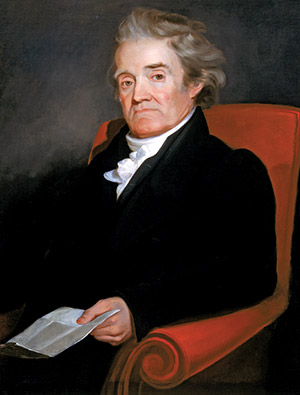 For those of you who have read this blog over the months, you may have noticed that the guy on the right has shown up more than once. His name is Noah Webster, a man I got to know quite thoroughly as I researched and wrote my doctoral dissertation because he was the subject of that endeavor.
For those of you who have read this blog over the months, you may have noticed that the guy on the right has shown up more than once. His name is Noah Webster, a man I got to know quite thoroughly as I researched and wrote my doctoral dissertation because he was the subject of that endeavor.
I was fascinated with Webster because he became a Christian convert at age 50, and his worldview altered considerably in the realm of education. He switched from being an Enlightenment devotee to a student of the Scriptures.
When he wrote his monumental dictionary, finally completing it in 1828, he defined education in this way:
That series of instruction and discipline which is intended to:
- Enlighten the understanding
- Correct the temper
- Form manners and habits
- Fit a person for usefulness
In my study, I was drawn to a certain passage of Scripture in the second book of Timothy, as the apostle Paul reminded his young disciple:
All Scripture is inspired by God and profitable for:
- Teaching
- For reproof, for correction
- For training in righteousness
- That the man of God may be adequate, equipped for every good work
If you compare those lists, you find a remarkable similarity. Teaching proper doctrine enlightens the understanding. Webster’s “correct the temper” is a character-oriented expression; Scripture being used for reproof and correction is for the purpose of inculcating proper character. When you form manner and habits in life, you are being trained in the way you should live, which is the same as being trained in righteousness. Finally, making a person fit for usefulness is no different than equipping someone for every good work.
Okay, here’s my logic, which I believe is solid in this case: if education and Scripture are both good for the same things, we should be able to use Scripture in education, without any qualms. God’s goals in His Word are the same goals we should have for education.
As I said in a previous post, there should be no division between the sacred and the secular—all knowledge ultimately comes from the God who gave us the ability to reason and draw conclusions about the world in which He has placed us.
Never apologize for using Scripture as the basis for education; it provides the principles—the general truths—that apply to all of life.
